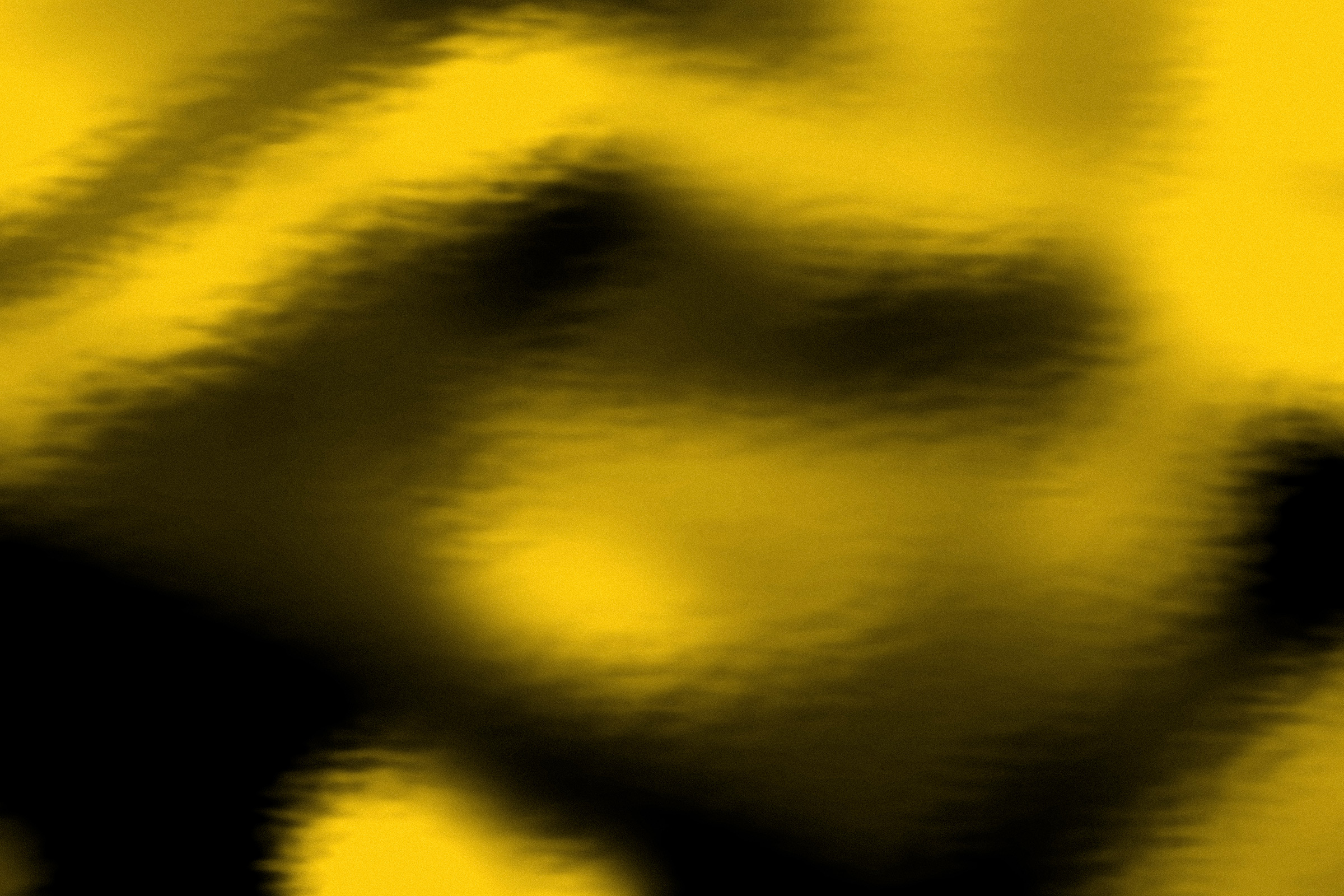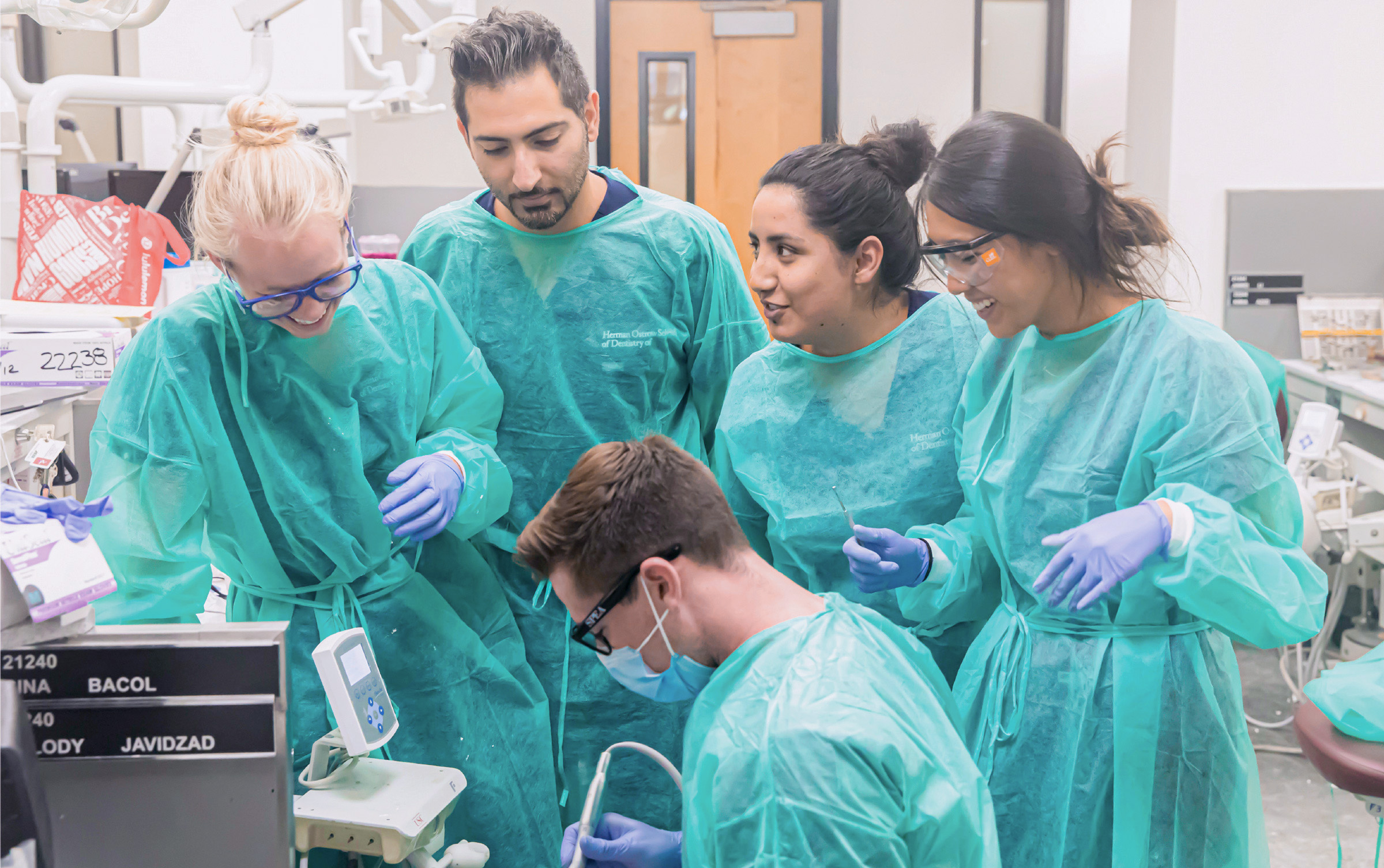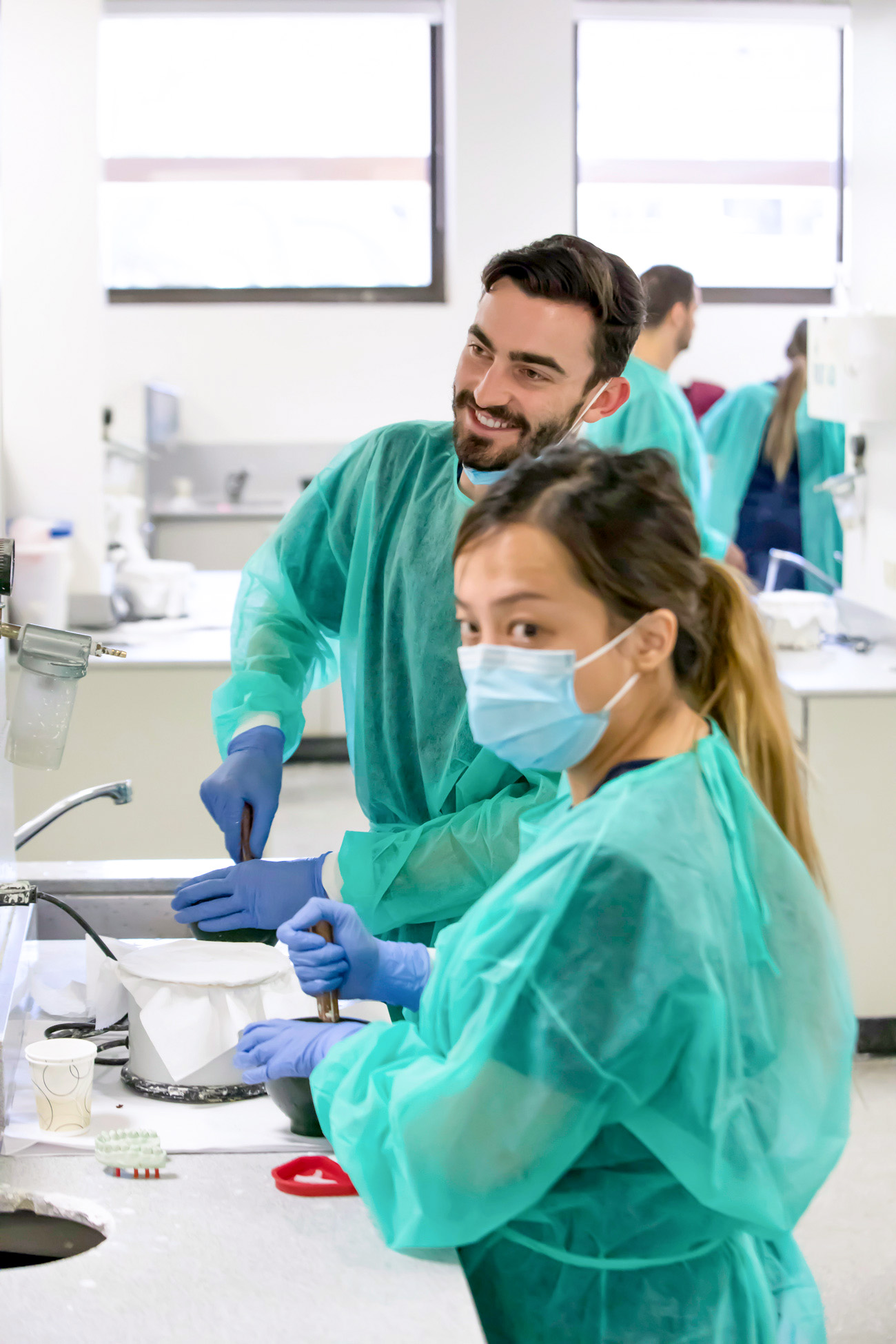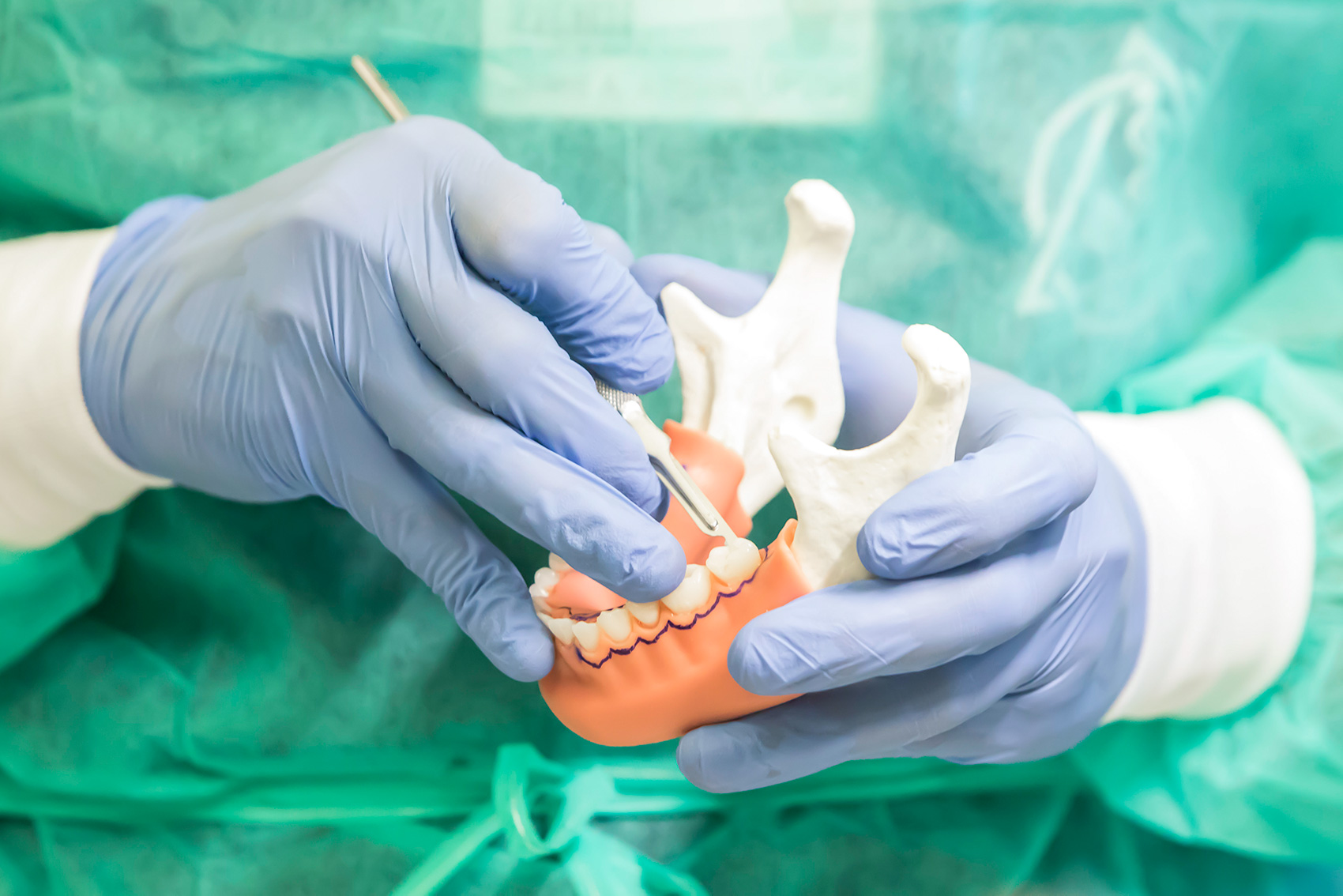
DOCTOR OF DENTAL SURGERY (DDS)
Ostrow’s innovative learner-centered curriculum gives Doctor of Dental Surgery students comprehensive clinical training and thorough preparation in the latest techniques for advanced oral health care.

Admission Requirements
Degree Requirements
All students applying to the Herman Ostrow School of Dentistry of USC must have a bachelor’s degree prior to matriculation from a U.S. accredited college or Canadian institution.
Prerequisite Course Requirements
Prerequisite coursework must be from an accredited college or university in the United States or Canada. No specific undergraduate major is required. We don’t accept accelerated programs in the sciences. Hybrid courses are allowed, but all lab courses must be done in person. No online labs will meet the requirement. Minimum of 60 semester units with a grade of C or better must be completed or in progress when you apply.
Required prerequisites are:
- General biology lecture (1 year) and lab (1 year)
- General physics lecture (1 year) and lab (1 year)
- Inorganic/general chemistry lecture (1 year) and lab (1 year)
- Organic chemistry lecture (1 year) and lab (1 year)
- English composition (1 year)
- Philosophy, history or fine arts (1 year)
One year is equal to 2 semesters or 3 quarters and must reflect a minimum of 8-10 units/credits. All basic pre-dental required classes, with the exception of philosophy, history or fine arts requirement, must be sequential and represent a terminal course (i.e. 101a and 101b, or on a quarter system 101a,b,c).
English composition and philosophy/history/fine arts requirements are automatically waived if you have a bachelor’s degree from an accredited college or university in the United States or Canada prior to starting dental school.
Coursework from a junior or community college is acceptable, though preference is given to applicants who have taken prerequisites at a four-year college or university. We strongly recommend that you take upper-division science courses (such as biochemistry, anatomy, histology, physiology) in addition to the required prerequisites.
Dental Admissions Test (DAT):
Applicants are required to take the DAT.
Please note that the DAT must have been taken within 3 years of the year in which admission is sought.
As of March 1, 2025, the DAT moved to a three-digit score. Please refer to the ADA DAT website for specific updates and a concordance table of new score.
Letters of Recommendation
- One letter of recommendation from a dentist. (It can be a general DDS or a specialist.)
- Two letters of recommendation from lecture-based science professors in biology, chemistry or physics, excluding letter of recommendation from a lab instructor or a research PI.
Letters must reflect your performance in the lecture component of class. A committee letter may be substituted if your undergraduate institution offers this service.
Upon graduation, to obtain a license in the state you plan to practice, you must do the following: take National Board, complete the clinical exam per that state licensing requirements and complete any other required document for that state.
How to Apply
APPLICATION AVAILABLE JUNE 1 (AADSAS) APPLICATION DEADLINE FEBRUARY 1 (AADSAS DEADLINE) LINKS DENTAL ADMISSIONS TEST (DAT) ASSOCIATED AMERICAN DENTAL SCHOOLS APPLICATION SERVICE (AADSAS) Online Payment Portal Required Health documentation
Here’s how to apply to the DDS program: 1. Take the Dental Admission Test (DAT) no later than February 1 of the year in which you’re applying for acceptance.
Your test scores must be no more than three years old to be accepted. We recommend you take the DAT prior to submitting your application.
2. Complete your online application using the ADEA AADSAS program, which is available beginning June 1 each year.
Applications are evaluated as they are received from AADSAS.
3. Submit your processing fee of $85 through our Online Payment Portal
Canadian students pay a $150 fee.
4. Visit the USC campus for an interview — by invitation only.
DDS admissions interviews typically begin in October and continue through April.
5. Meet our health requirements.


Class Profile
DDS Class of 2028 Profile
144 members of Class of 2028
53% female/47% male
Ethnicity/Race
Asian 63, Black 3, Hispanic 4, White 53, Mixed Race 12, Didn’t Report Ethnicity/Race 9
Degrees
Six hold a master’s degree, and all hold bachelor’s degrees
GPA
3.76 average total GPA
3.70 average science GPA
DAT
21 DAT academic average
20 DAT PAT average
21 DAT science average
AGE
Age range 19-37
21 U.S. States/Territories
In addition to California, enrolling students come from 20 other U.S. states/territories: Alaska, Arizona, Florida, Hawaii, Illinois, Iowa, Maryland, Massachusetts, Michigan, Minnesota, Nebraska, Nevada, New Jersey, New York, North Carolina, Pennsylvania, Texas, Utah, Washington and Washington D.C.
36 Majors
Most popular majors were biology, biochemistry, chemistry, health, history, psychobiology, psychology, sociology, biomedical science, public health and natural science.
61 Undergraduate Universities
Top feeder schools: UCLA (22), UC San Diego (13), UC Irvine (12), USC (10), UC Riverside (6) and UC Santa Barbara (6)